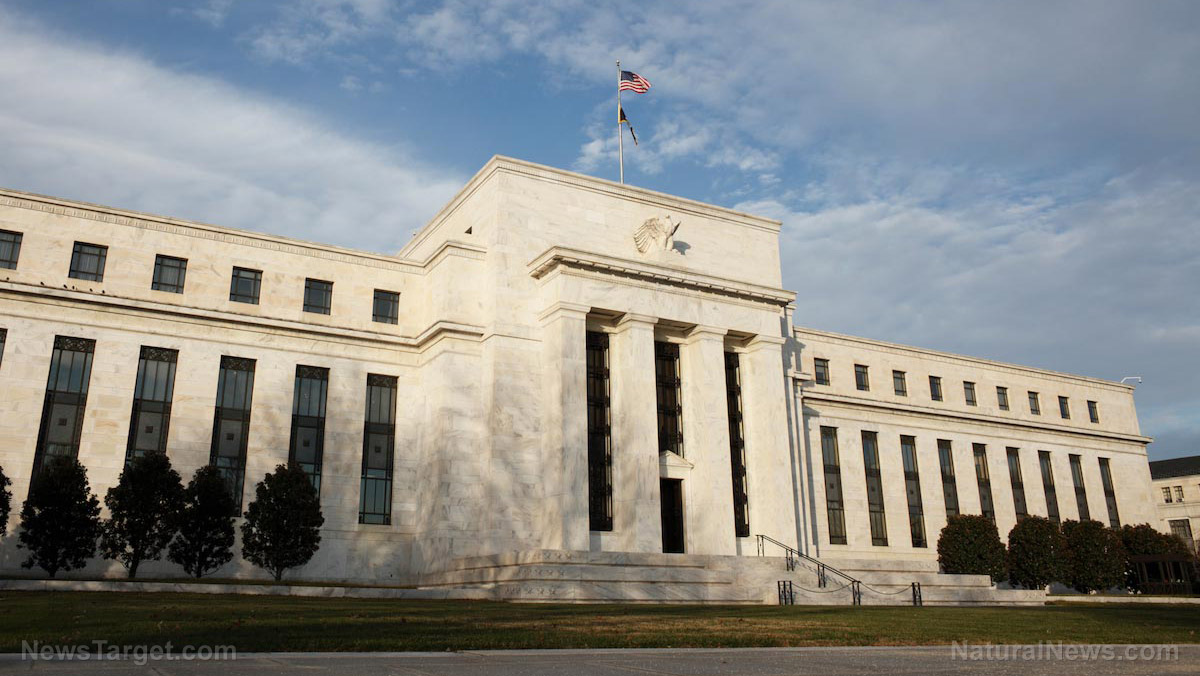Financial dominoes tumble as commercial real estate sector IMPLODES
02/15/2024 / By Ethan Huff

A top-performing fund manager is warning that large segments of the global market, particularly in the commercial real estate sector, are “in very deep trouble.”
Jonathan Golan of Man Group Plc in London says the potential for defaults will not be confined strictly to the United States, whose economy is barely limping along on life support despite the illusion of economic stability.
“You’ve got more banks that are coming under scrutiny, more banks falling casually, and potentially some banks defaulting on both sides of the Atlantic,” Golan explained, tying Europe to the cascading collapse as well.
Golan’s investment-grade bond fund beat 99 percent of all other bond funds last year, according to Bloomberg data, so he more than likely knows what he is talking about – and the world would do well to listen to him.
Most of the current problems apparently stem from the Asia-Pacific region of the world where banks left and right are sinking under the weight of a collapsing commercial real estate (CRE) sector.
At Shanghai Commercial Bank Limited, for instance, 29 percent of loans, or around 12 percent of the company’s assets, exist in the U.S. market. This bank does not publicly disclose what share of all this is CRE-related.
China CITIC Bank International Limited has about five percent of its loans, or 2.7 percent of its assets, in the U.S. market, though not all of this is CRE.
Macquarie Group Limited in Australia is said to have U.S. exposure “above the average for Fitch-rated banks in APAC.
“Some APAC financial institutions, including banks not rated by Fitch, potentially have U.S. CRE exposure levels higher than the average for Fitch-rated APAC banks,” reports explain.
(Related: You know who else is on the verge of experiencing a financial collapse? The Jewish ethnostate of Israel.)
Global finance woes spreading like cancer
The fact that the CRE problem is “spread far and wide,” to quote one media source, means the impact thus far is less noticeable. All it takes is one domino to fall, though, to trigger all the others falling as well.
As the problem trickles over to Europe, it then spreads across the pond and beyond, much like a cancer that metastasizes and starts infecting the rest of the host, in this case the entire globe.
“In Germany, Scandinavia, we are seeing commercial real estate exposure as percent of tangible equity in the 400, 500, 600, 700% range,” Golan said in an interview.
“If each of these banks takes a 15-cent write down for every dollar they lend to commercial real estate – which I’m not saying is a base case, but is a completely reasonable scenario – not only are these banks not investment grade, they’re insolvent.”
Germany, the heart and center of Europe’s economy, is seeing the worst of the CRE crisis right now. From there, the rest of Europe will likely feel it, followed by a cascading collapse that travels through North America and all across Asia.
You can expect more regional bank failures followed, potentially, by larger bank failures. After all, unrealized bank losses rose to an all-time high in the third quarter of 2023, right around the time Hamas attacked Israel and Israel responded with full-scale war that continues to this day.
“According to Moody’s, major U.S. banks are sitting on $650 billion in unrealized losses,” one report explains about the dire situation.
“The commercial real estate market, once an example of economic strength, stability and prosperity, now stands on the edge of crisis. Delinquency rates in commercial real estate have reached a 10-year high, with almost $80 billion worth of property in distress.”
It won’t be long now before the finance that is becomes the finance that is no more. Learn more at Collapse.news.
Sources for this article include:
Submit a correction >>
Tagged Under:
banks, Bubble, chaos, Collapse, commercial real estate, CRE, debt bomb, debt collapse, economic collapse, finance, finance riot, Inflation, Jonathan Golan, market crash, money supply, panic, pensions, Real Estate, risk
This article may contain statements that reflect the opinion of the author
RECENT NEWS & ARTICLES
COPYRIGHT © 2017 PENSIONS.NEWS
All content posted on this site is protected under Free Speech. Pensions.news is not responsible for content written by contributing authors. The information on this site is provided for educational and entertainment purposes only. It is not intended as a substitute for professional advice of any kind. Pensions.news assumes no responsibility for the use or misuse of this material. All trademarks, registered trademarks and service marks mentioned on this site are the property of their respective owners.



















